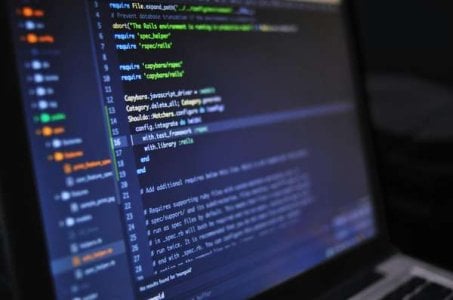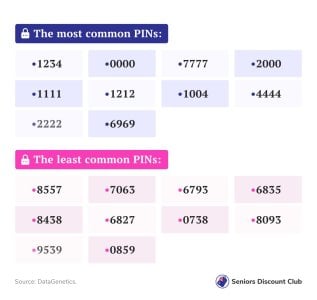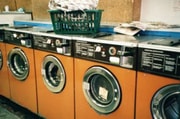This analysis reveals the most vulnerable four-digit codes. Is yours on the list?
By
Danielle F.
- Replies 22
As technology advances, digital security plays a crucial role in our lives.
However, many still choose convenience over complexity regarding personal identification numbers (PINs).
With cybercrime on the rise and scams becoming sophisticated and convincing, we must ensure that the PINs we use to protect our information are not a welcome mat for cybercriminals.
A recent analysis reported by Information is Beautiful revealed a startling truth: a significant number of us are still using the most predictable and familiar PINs.
Initially compiled by the late Nick Berry, the data highlighted a tendency to choose PINs that are easy to remember, such as simple sequences or repeating patterns.
The analysis, which examined 3.4 million leaked PINs, found that '1234' is the most common PIN, used by nearly 11 per cent of people, followed by other simple sequences.
These findings are a stark reminder that despite the risks, many people are not taking the necessary steps to protect themselves.
This preference for simplicity over security is a hacker's dream, making their nefarious work easy.
In contrast, the data also shared the least common PINs.
These numbers are less intuitive and less vulnerable to quick breaches.
With 10,000 possible combinations for a four-digit PIN, choosing a less common sequence can significantly enhance your security.
Cybersecurity experts warned that using guessable PINs, such as birthdays or repeated patterns, can make users an easy target.
Jake Moore, a Global Cybersecurity Advisor at ESET, emphasised the importance of avoiding PINs related to personal information that may be easily accessible to attackers.
'People continue to use PIN codes that are commonly used or related to them and easily accessible, such as dates of birth,' he said.
'They may have used the same codes for years when cyber awareness was poorly documented.'
The risks extend beyond just PINs for bank cards; they also apply to passwords for online services.
NordPass's research indicated that hackers can crack 70 per cent of passwords in less than a second, as many people still use common words or numerical strings.
According to NordPass Chief Technological Officer Tomas Smalakys, about 31 per cent of the world's most used passwords only contain numbers.
'Such passwords can be hacked almost instantly, as hackers use automated systems rather than typing them out,' he shared.
Professionals recommended using more complex passwords and PINs that combine random letters and numbers to protect yourself from cybersecurity threats.
While new passwords are challenging to remember, password managers can securely store and even generate random codes—eliminating the need to rely on easily guessable information.
For those concerned about online security, tools like 'Have I Been Pwned?' can help check if an email or password was compromised in a data breach.
If you find your information exposed, change your passwords immediately.
In addition to using a password manager, enabling two-factor authentication and staying informed about breaches are vital steps to bolstering your digital defences.

Is your PIN putting your information at risk? If your code is on the list of common PINs, it might be time for a change. Share your experiences with digital security in the comments below.
However, many still choose convenience over complexity regarding personal identification numbers (PINs).
With cybercrime on the rise and scams becoming sophisticated and convincing, we must ensure that the PINs we use to protect our information are not a welcome mat for cybercriminals.
A recent analysis reported by Information is Beautiful revealed a startling truth: a significant number of us are still using the most predictable and familiar PINs.
Initially compiled by the late Nick Berry, the data highlighted a tendency to choose PINs that are easy to remember, such as simple sequences or repeating patterns.
The analysis, which examined 3.4 million leaked PINs, found that '1234' is the most common PIN, used by nearly 11 per cent of people, followed by other simple sequences.
These findings are a stark reminder that despite the risks, many people are not taking the necessary steps to protect themselves.
This preference for simplicity over security is a hacker's dream, making their nefarious work easy.
In contrast, the data also shared the least common PINs.
These numbers are less intuitive and less vulnerable to quick breaches.
With 10,000 possible combinations for a four-digit PIN, choosing a less common sequence can significantly enhance your security.
Cybersecurity experts warned that using guessable PINs, such as birthdays or repeated patterns, can make users an easy target.
Jake Moore, a Global Cybersecurity Advisor at ESET, emphasised the importance of avoiding PINs related to personal information that may be easily accessible to attackers.
'People continue to use PIN codes that are commonly used or related to them and easily accessible, such as dates of birth,' he said.
'They may have used the same codes for years when cyber awareness was poorly documented.'
The risks extend beyond just PINs for bank cards; they also apply to passwords for online services.
NordPass's research indicated that hackers can crack 70 per cent of passwords in less than a second, as many people still use common words or numerical strings.
According to NordPass Chief Technological Officer Tomas Smalakys, about 31 per cent of the world's most used passwords only contain numbers.
'Such passwords can be hacked almost instantly, as hackers use automated systems rather than typing them out,' he shared.
Professionals recommended using more complex passwords and PINs that combine random letters and numbers to protect yourself from cybersecurity threats.
While new passwords are challenging to remember, password managers can securely store and even generate random codes—eliminating the need to rely on easily guessable information.
For those concerned about online security, tools like 'Have I Been Pwned?' can help check if an email or password was compromised in a data breach.
If you find your information exposed, change your passwords immediately.
In addition to using a password manager, enabling two-factor authentication and staying informed about breaches are vital steps to bolstering your digital defences.
Key Takeaways
- A data set revealed '1234' as the most commonly used four-digit PIN, found in around 11 per cent of a sample of 3.4 million passwords.
- Cybersecurity experts warned that using easy-to-guess PINs or passwords can significantly increase the risk of cyber attacks and fraud.
- The least common four-digit PINs were more complex and did not follow expected patterns, such as dates or repeating numbers.
- For better online security, experts recommended using more complicated passwords, enabling two-factor authentication, and using password managers.









